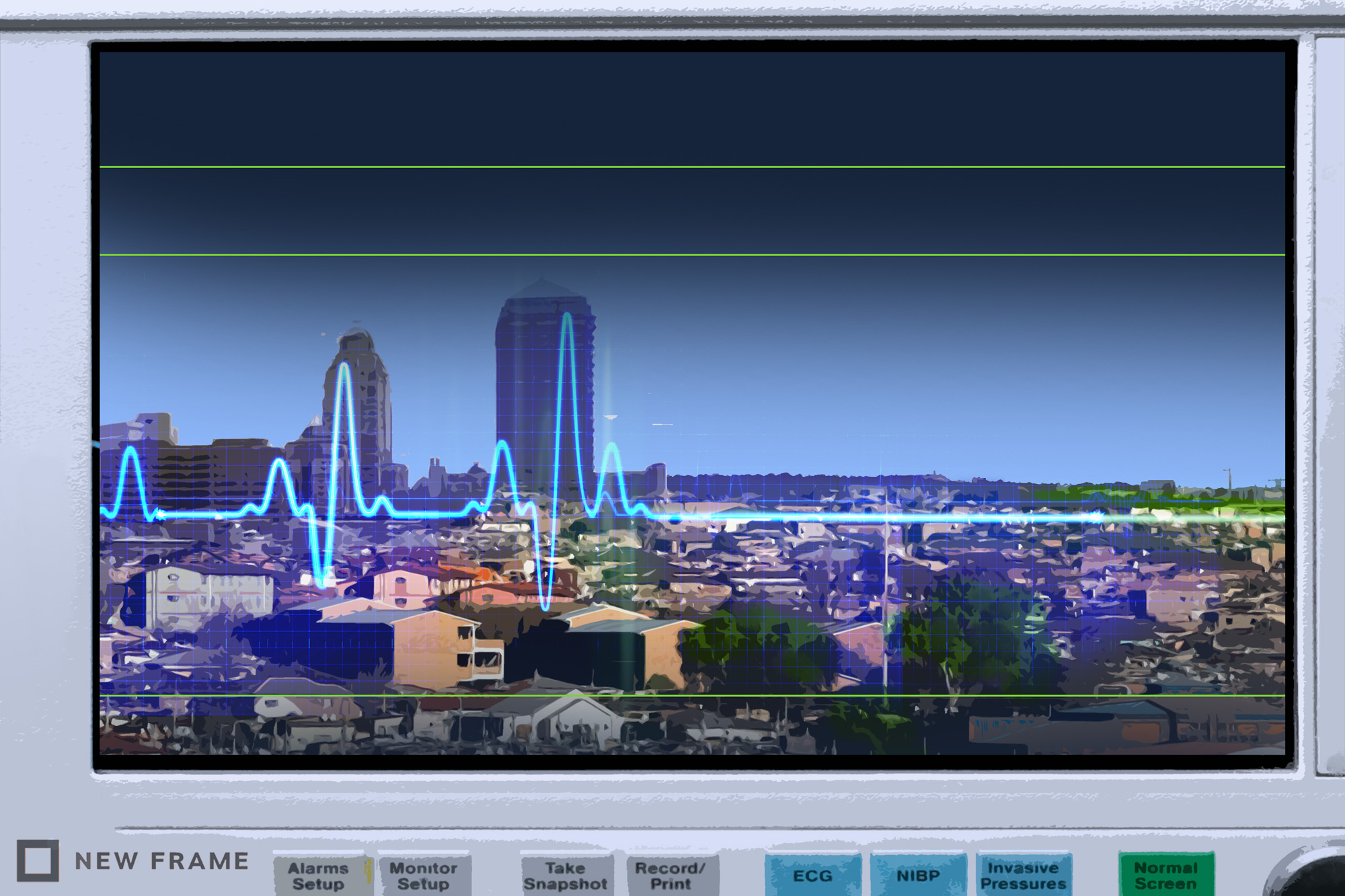SA reaps what it has sown as Covid-19 rages
Among the growing list of coronavirus symptoms is social inertia. We simply cannot afford it as thousands fall ill by the day and jobs are slashed.
Author:
17 July 2020

This week, South Africa surpassed the number of confirmed Covid-19 cases in the United Kingdom, long considered one of the coronavirus’ global epicentres. We are well and truly in the eye of the storm.
But if the coronavirus found fertile ground in a British system where the state’s burden of care has been eroded by austerity and decades of privatisation before that, in South Africa it found a breeding ground of a different sort: inequality.
Some observers have made the absurd suggestion that Covid-19 has exposed the weaknesses in the economy and shone a light on South African inequality. But we knew that the wealthiest 3 500 people owned more than the poorest 32 million before the virus. We knew that the richest 10% took home 65% of all income, and that the wages of the bottom 10% had shrunk by a quarter during the same period that the top 1% saw their earnings balloon by 48%. We knew about South African inequality.
Related article:
The shattering release this week of the National Income Dynamics Study – Coronavirus Rapid Mobile Survey (Nids-Cram) was an economic crop whose seeds had long been sown. Jobs – overwhelmingly those of black, women, informal and manual workers – have been slashed. As a result, at least three million more people were pushed into poverty during the first month of lockdown alone.
The most revealing figure in the Nids-Cram data, however, does not concern something that happened after lockdown, but something that didn’t happen: 40% of the harrowing increase in South African poverty could have been avoided had the government increased social grants just one month sooner.
Related article:
Economists sounded clear early warnings of the potential humanitarian crisis posed by the government’s strict initial lockdown. They also pointed to a well-positioned countermeasure, South Africa’s social grants system. But it took a month – during which one in eight people frequently went hungry – after the president shut down the economy before grants were topped up and the new Covid-19 social relief of distress grant introduced.
The new grant has been an unmitigated failure, with the number of recipients constantly lagging behind the number of people applying. Senior officials in both the Department of Social Development and the South African Social Security Agency have regularly boasted that the strict exclusion of applicants has saved millions of rands.
Clear signal
The coronavirus, however, has put to bed arguments over whether welfare is a problem or a solution; where government responses have been a success – in China, Germany, Vietnam, South Korea and the state of Kerala in India – states have been equipped to intervene decisively on behalf of their citizens’ wellbeing. The Nids-Cram data is the clearest signal yet that South Africa’s economy is failing, even by the most basic measure of feeding people. Radical interventions, a basic income grant for one, are now required.
Minister of Social Development Lindiwe Zulu announced to some fanfare this week that the government is considering the possibility of such a grant. But the fact that a basic income grant has been on the ANC’s agenda in one form or another since the turn of the millennium should be ample proof against that most steadfast figment of elite imagination, that progressive gains can be won without a fight.
Related article:
The vacant calls for an equitable redistribution of land are the clearest demonstration of this. They ring out almost daily in politicians’ stump speeches and from the halls of Parliament and non-governmental organisations, apparently ignorant of the fact that such a redistribution is fought for and won by land occupations organised from below, and in the face of severe state repression, every day.
And here, there has been an abysmal failure in South Africa’s elite public discourse, in which the media has played a leading role. Every inch of newspaper columns dedicated to alcohol bans at the expense of a proper understanding of the failures in state capacity, which are deepening poverty and hunger among an already impoverished and hungry population, have only served to mystify what South Africa’s public interest currently is, and where the battle should be waged.
The ANC government derives its legitimacy from an electoral majority. But it has failed to build the capacity required to deliver the material promises of the democracy which that majority helped win. It has prioritised a project of nation-building at the expense of the more important project of building a capable state. The former, however, depends on the latter. And while the state appears well-equipped for the kinds of repression that deepen our social morass – it has torn down homes with familiar efficiency, while a New Frame special series on police violence this week details the ease with which it has extinguished life – the urgent failure to pay out lifesaving grants shows it is ill-equipped for the solution: welfare.



